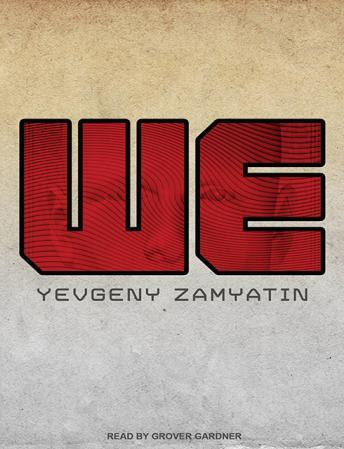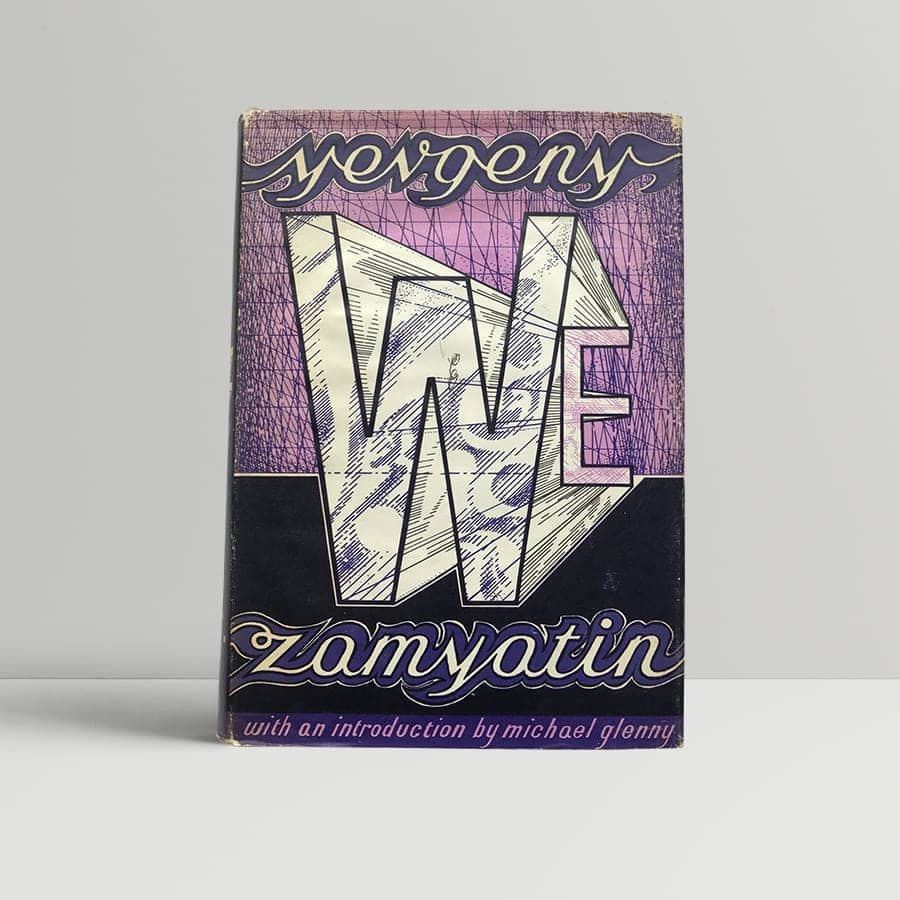

We was not published in Russia until the glasnost era of 1988 among its most controversial passages for the Soviets was an apparent call for a new revolution to sweep away theirs: "How can there be a final revolution? There is no final one. This is a book to look out for when an English version appears." He seems to have taken his own advice. "It is in effect a study of the Machine," Orwell wrote of We, "the genie that man has thoughtlessly let out of its bottle and cannot put back again. In his review, he called Zamyatin's book an influence on Aldous Huxley's Brave New World, though Huxley always denied anything of the sort. Orwell reviewed We for Tribune in 1946, three years before he published Nineteen Eighty-Four. Should it alter our respect for it that Orwell borrowed much of his plot, the outlines of three of his central figures, and the progress of the book's dramatic arc from an earlier work?

Orwell's novel is consistently acclaimed as one of the finest of the last 100 years – two years ago Guardian readers voted it the 20th century's "definitive" book – and it remains a consistent bestseller. But it is also the plot of Yevgeny Zamyatin's We, a Russian novel originally published in English in 1924.

This is a description of George Orwell's Nineteen Eighty-Four, which was first published 60 years ago on Monday. The story is intended as a warning against and a prediction of the natural conclusions of totalitarianism. In the end, the system discovers both the man and the woman, and after a period of physical and mental trauma the protagonist discovers he loves the state that has oppressed him throughout, and betrays his fellow rebels. Encouraged by a woman who seems to represent the political and sexual freedom of the pre-revolutionary era (and with whom he sleeps in an ancient house that is one of the few manifestations of a former world), he writes down his thoughts of rebellion – perhaps rather imprudently – as a 24-hour clock ticks in his grim, lonely flat. It is a book in which one man, living in a totalitarian society a number of years in the future, gradually finds himself rebelling against the dehumanising forces of an omnipotent, omniscient dictator.


 0 kommentar(er)
0 kommentar(er)
